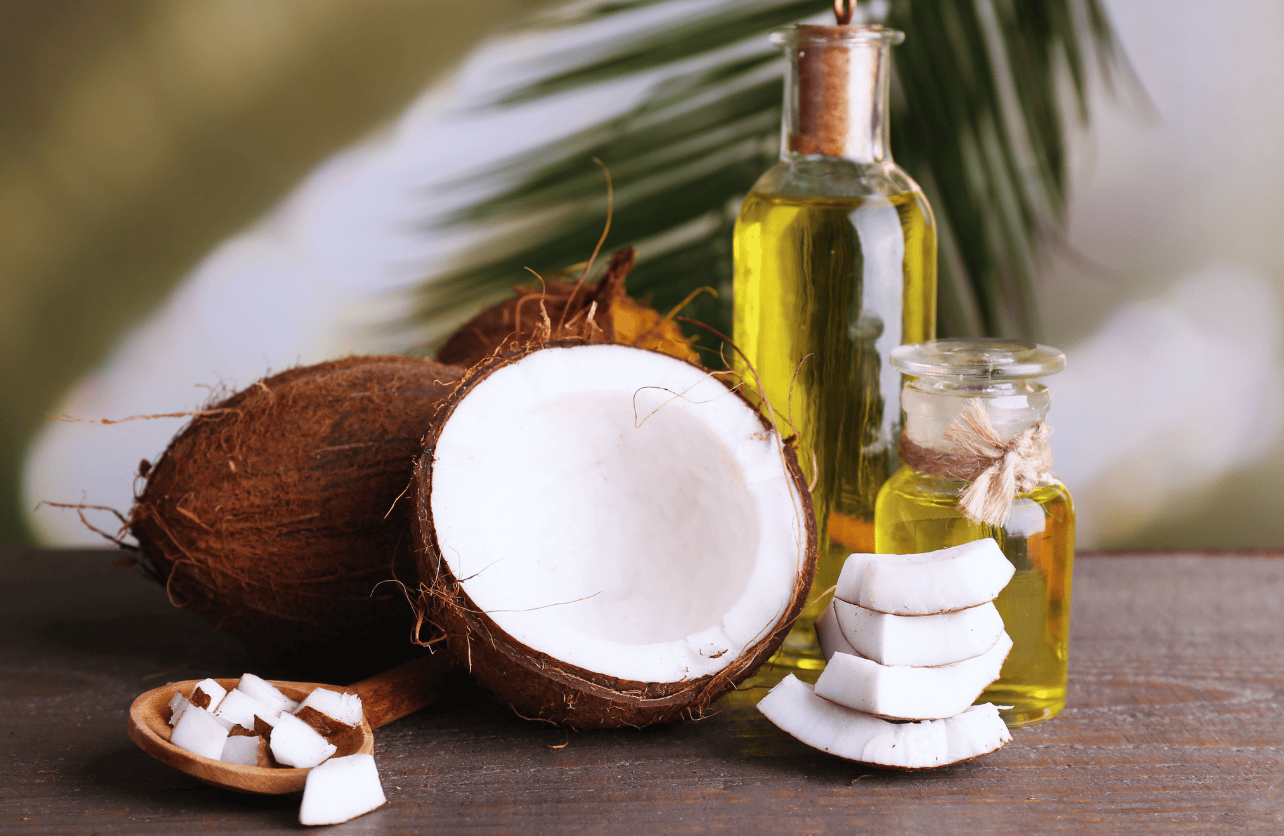Is Coconut Oil a Seed Oil? Not Even Close—Here’s Why

Coconut oil often shows up in the same grocery aisle as canola, sunflower, and soybean oil, but lumping it in with seed oils is misleading at best. If you’ve already explored what makes seed oils unique—extracted from plant embryos, high in polyunsaturated fats, often chemically refined—then it’s time to clarify why coconut oil doesn’t belong in that category at all.
It Starts With the Fruit
Botanically, coconuts aren’t seeds—they’re drupes. That’s a type of fruit with a fleshy exterior, a hard shell, and a seed tucked inside. But here’s the twist: the oil we call “coconut oil” isn’t pressed from that seed. It’s extracted from the endosperm, the white, fatty flesh lining the inside of the coconut. That makes it fundamentally a fruit oil, like olive or avocado oil, not a seed-derived oil.
So while coconuts technically contain seeds, the part we eat—and the part that’s turned into oil—is the fruit flesh, not the embryonic seed tissue you’d find in a sunflower or soybean.
Why Industry Labels It Differently
Food manufacturers and regulators don’t just wing it when labeling oils. They rely on botanical classifications and chemical composition. Coconut oil shows up on ingredient labels as Cocos nucifera oil, not as a seed oil, and it’s usually grouped with other tropical oils like palm and avocado. This isn’t just semantics—it’s a meaningful distinction based on where the oil originates.
Unlike seed oils, which are frequently solvent-extracted and then refined to remove flavors, coconut oil is often cold-pressed or gently heated from fresh or dried meat (called copra). It retains a mildly sweet aroma and creamy consistency—completely unlike the neutral, pale yellow oils typically pressed from seeds.
The Fat Profile Is Nothing Alike
One of the main reasons people confuse coconut oil with seed oils is that both are plant-based. But that’s where the similarity ends. Coconut oil is about 90% saturated fat, with a large portion made up of medium-chain triglycerides (MCTs)—a fat type with unique metabolic effects. MCTs are digested faster, sent to the liver, and often used as an immediate energy source rather than stored.
Seed oils, by contrast, are rich in polyunsaturated fats, particularly omega-6 fatty acids. While those have their place in a balanced diet, they’re also more prone to oxidation and often make up a disproportionately high share of fats in modern diets. Coconut oil has virtually zero omega-6—so it plays a very different role when you’re trying to manage fat types and inflammation markers.
In the Kitchen, It Acts Like Butter—Not Canola
You’ll notice the difference the minute you try to cook with coconut oil. It’s solid at room temperature, melting only around 76°F (24°C). That makes it an ideal substitute for butter or shortening in baking, and its high saturated fat content means it’s more stable under heat than most seed oils.
It also has a distinct, subtly sweet aroma—something you definitely don’t get from canola or corn oil. This makes it perfect for curries, baked goods, or tropical-inspired dishes where a hint of coconut enhances the flavor profile.
Labeling and Health Context Matter
From a dietary standpoint, the difference matters. Many people avoiding seed oils are doing so to reduce omega-6 intake or avoid the heavy processing associated with industrial vegetable oils. Coconut oil fits neither profile. It’s low in omega-6s, often unrefined, and made from whole food sources without chemical solvents.
That doesn’t mean it’s a free-for-all. Because it’s high in saturated fat, coconut oil remains controversial in some nutrition circles. But whether you use it for its cooking stability, MCT content, or flavor, you’re not reaching for a seed oil—and that’s a fact both botany and biochemistry support.
The Takeaway
Coconut oil doesn’t come from a seed, isn’t extracted from an embryo, and doesn’t behave like a seed oil in your body or your frying pan. It’s a fruit-derived, saturated fat-rich oil with a very different nutritional and culinary identity. So if you’re trying to avoid seed oils or just want to understand where your fats are coming from, coconut oil belongs in its own category—right alongside avocado, olive, and other fruit oils that don’t need a chemistry lab to earn their place in your kitchen.
Building a Stronger You
Supplement Institute is the fruit of extensive online publishing experience, spanning the breadth of SEO strategies to the nuances of paid advertisements. Our journey, marked by significant achievements and learning moments, inspires our core mission: to empower our readers with an abundance of information. By sharing insights and key learnings, we aim to provide you with the knowledge needed to navigate the complex world of supplements, helping you make well-informed decisions for your health and well-being. Welcome to Supplement Institute, where information is your greatest supplement.